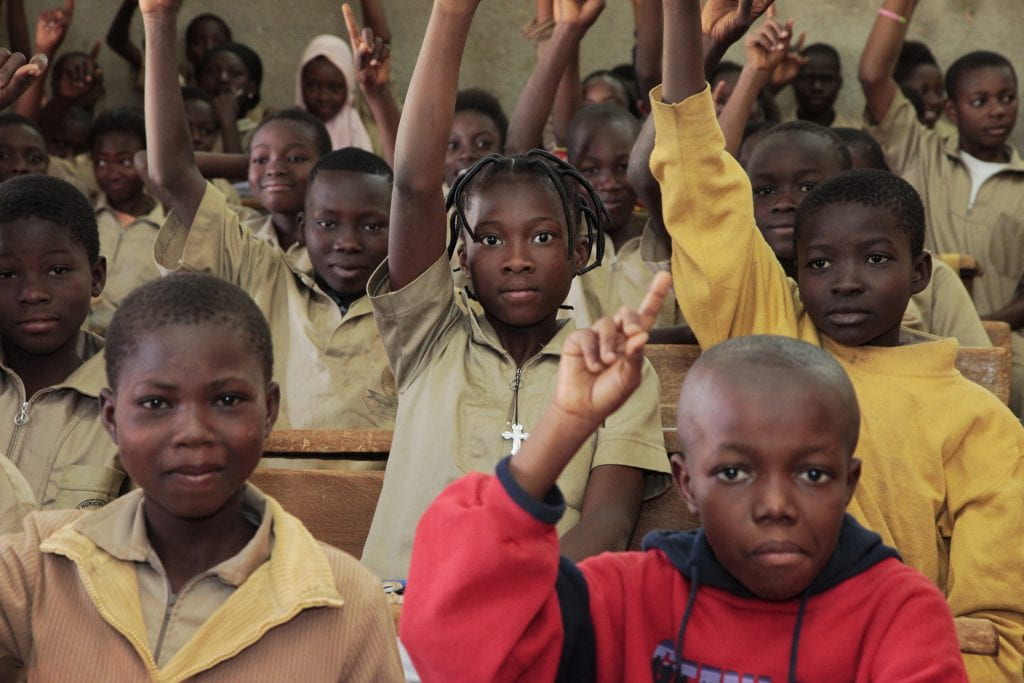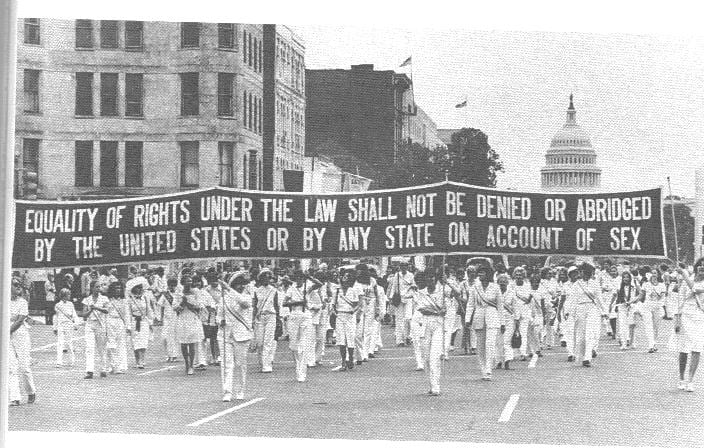
These three words “NEVERTHELESS, SHE PERSISTED” by Mitch McConnell, meant as a means of expressing his authority over Elizabeth Warren on the Senate floor last month, have been co-opted by women around the world as a rallying cry and a reminder that women’s rights are human rights. The phrase uttered to news outlets, regarding Warren’s defiance as she read a letter from Coretta Scott King about the US Attorney General appointment of Jeff Sessions. As Warren read, she was interrupted, forced to stand down and remain silent for the duration of the session. Unshaken, Warren utilized another room and modern technology to continue the statement. The male Democrat Senators proceeded to read the entire letter on the Senate floor, without interruption. This scene symbolizes, in various ways around the world, the blatant and subtle, dismissive and disrespectful interaction of some men towards women.
Yesterday was International Women’s Day (IWD). IWD originated as a nod to the women in the 1909 New York City factory workers strike. A 1910 international meeting in Copenhagen established the annual recognition of female advancement in human rights, including voting rights, though there was no date for the observance; in 1975, the United Nations settled on March 8. UN Secretary General Antonio Guterres explains that the protection of women and girls comes to fruition through empowerment, reducing the gender inequality that leads to discrimination, and bolstering socially and economically weak communities and societies. “Women’s legal rights, which have never been equal to men’s on any continent, are being eroded further.” Gender equality, one of the 17 Sustainable Development Goals, is an essential component in the plan “agreed by leaders of all countries” as they work in partnership to ensure the inclusion of all.
Women have been fighting against an imbalanced relationship between the sexes for centuries. Sherry Ortner believes “the universality of female subordination, the fact that it exists within every type of social and economic arrangement and in societies of every degree of complexity…something we cannot rout out simply by rearranging a few tasks and roles in the social system…The underlying logic of cultural thinking assumes the inferiority of women.” According to historian Gail Collins, the single women of the colonies were either “tobacco brides”, indentured servants who were raped and often forced into marriage, or labeled witches and spinsters. Married colonial women achieved the highest status and authority when contributing to the progress of the nation by working in the fields, growing crops, and harvesting food; black couples were indentured servants who once they gained their freedom, owned businesses and shops. At the time, black women did not have the same constraints as white women. She contends, “Virtually all the colonial women wanted to marry, but when they did, they were automatically stripped of their legal rights. A wife’s possessions became her husband’s, and she was unable to do any business on her own, sue, borrow money, or sign contracts. A married women was virtually powerless…His character determined how far she could rise in life.” Collins is describing colonial America; however, presently, in 2017, women—whether single or married– many countries around the world remain powerless, consigned to relying on the males in their family to determine who and what she becomes.
By the 1800s, white women and homemakers were creating reform movements and petitioning for equality; black women were now domestic and sexual property of slave owners. In 1848, abolitionist Elizabeth Cady Stanton gave her Declaration of Sentiments and Resolutions at the Seneca Falls Women’s Convention she organized. Suffragette Susan B. Anthony pronounced, “Woman has been the great unpaid laborer of the world, and although within the last two decades a vast number of new employments have been opened to her, statistics prove that in the great majority of these, she is not paid according to the value of the work done, but according to sex.” The late 19th century brings the right to vote to the women of New Zealand; however, for the public sphere to hear the voice of women, it will first arrive in the form of protest from around the world.

The 20th century generates the fight for suffrage via women like Emmeline and Christabel Pankhurst in Britain. Margaret Sanger battles Comstock Laws, making birth control available for women desperate to end the circular nature of “barefoot and pregnant”. The rise of labor needs introduces women to factory work. Yet with wars end, women lost their jobs by being “expressly fired”, replaced by men, and reduced to the ranks to domesticity. In 1963, the Civil Right Act passed, the Commission on the Status of Women is established and the Equal Pay Act, which bars unequal pay for the same or similar work completed by men or women, within the same organization, becomes federal law. Betty Friedan in her book, The Feminine Mystique, exposes the American ideal as a myth, stating
“Over and over women heard voice of tradition and of Freudian sophistication that they could desire no greater destiny than to glory in their own femininity. Experts told them how to catch a man and keep him, how to breastfeed children and handle their toilet training… They were taught to pity the neurotic, unfeminine, unhappy women who wanted to be poets or physicists or presidents. They learned that truly feminine women do not want careers, higher education, political rights—the independence and the opportunities that the old-fashioned feminists fought for. All they had to do was devote their lives from earliest girlhood to finding a husband and bearing children.”
Enter the second wave of feminism. Ortner argues that ‘female is to nature as male is to culture’ is a code of practice derived to perpetuate inequality. Most distressing is that global humanity bought into this lie and label anyone willing to stand against it, deviant. Herein lies the disdain for the term “feminist”.
The characterization of feminists as an ambitious, aggressive, bossy, b*%$#y, bra-burning woman who hates all men reveals the failed understanding of a women who stand up for themselves and the rights of other women as a means of gender equality. The fight for feminists is political because the political is personal, and the personal, political as Leymah Gbowee believes. Though progress has been made, there are significant strides yet to be made on behalf of women, politically, socially, and economically; until the fullness of women’s rights are human rights is fully accepted, implemented, and recognized.
First, women need positions of governmental leadership. The public sphere has made room for female representation by respecting the human right to participate in country elections–Saudi Arabia was last in 2015—but the issues facing women are not accurately addressed. Of the 192 nations on earth, women represented 59 in the past 50 years. The feminine voice has representation on some local levels of government within the US; however, on the national level, women possess less than 20% of the seats. Conversely, Rwandan women account for 64% of parliamentary seats as of 2013. Rwanda, known for the 1994 genocide, “has the most women’s participation globally.” Additionally, www.heforshe.org ranks Rwanda as the highest commitment leader, based upon population, for gender equality.
Second, “boys will be boys” is not an acceptable stance to take regarding misogyny and sexism. The cliché permits the turn of a blind eye where gender-based violence (GBV)–sexual harassment, bullying, stalking, assault, etc.–are concerned. Whether UN peacekeepers or college students, the combination of these actions, and a lackadaisical response from citizens and law enforcement, creates a culture where violence against women is not considered taboo. Brock Turner caught in the act and convicted of sexual assault, and released within three months of his six-month sentence. Survivors of sexual assault, regardless of gender, endure treatment as guilty of contributing to their assault: ‘what were you wearing’ or ‘why did you walk alone’, more often than the perpetrator is innocent of committing assault; therefore, most go unreported. Jill Flipovic presents rape and sexual assault as “both a crime and tool for social control.” She believes sexual assault is the result of a systemic problem of misogynistic behavior, rooted in the debasement of women by men and accepted by the by-standing status quo.
Rape and sexual assault will continue as a weapon and means of control until perceptions about sexism and misogyny change, and the creation and implementation of laws protect the survivors rather than the attacker. In Malawi, the government plans to increase the number of reported GBV by “setting up a mechanism… [that] will strengthen the 300-community based victim support units and build their capacity to handle cases in coordination with law enforcers and judiciary.” Male heads of state, university presidents, and business leadership possess a unique opportunity of deconstructing structural violence and reconstructing institutional, gender equal framework by employing IMPACT 10x10x10 top-down engagement strategy.

Third, look for the glass ceiling to be broken through the removal of economic and labor barriers. Tennis leads the way in pay equality due to the persistent advocacy of Billie Jean King and Venus Williams. American Bessie Coleman was the first black female pilot; two weeks ago, First Officer Dawn Cook and Captain Stephanie Johnson made history as the first black pilots to command the cockpit at the same time. In addition, Soudaphone and Phinanong of Laos, made aviation history as the first female pilots.
Nathaniel Parish Flannery writes, “one in 4,000” of the world’s largest companies have a seat for women on their boards. Prime Minister of Iceland Bjani Benediktsson stated, “When it is no longer news to have women in leading position, then—and only then—will we have gender parity.” According to the glass-ceiling index, Iceland is the best nation in the world to work, leading the way in gender equality. Over the course of five years, Scandinavian countries have positioned in the top five, whereas the United States ranked 20th, seven below the average. On Tuesday, the fearless girl representing gender inequality and pay disparity became an addition to the bull on Wall Street.
For more nearly 400 years, the persistence of women has pushed back the bounds of patriarchy, which interrupted our growth, forced us to take a backseat on policy and agenda issues regarding our personhood, seeking our demure silence and acceptance. Today, in 2017, given the persistent history, current global political climate, and subsequent rise of global solidarity, the collective SHE has heard the warnings, ignored the explanations, and raised a resistance.
